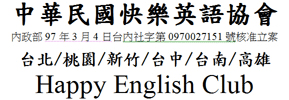Hi, Mandy. How are you doing?

"TO" can be used as an infinitive as well as a preposition. When it's used as a preposition, It's followed by either a V-ing or a noun.
I think you are used to "TO" being followed by a noun when it is a preposition.
A.(n.+ TO +
n.)
the damage TO the
car 對這輛汽車的損壞
an invitation TO the
party 派對的一張邀請函
a solution TO the
problem 問題的解釋方式
his attitutde TO his
job 他對工作的態度
B.( adj.+TO+
n. )
be similar TO
mine 跟我的類似
be used TO the
food 習慣這種食物
be married TO a
Britishman 跟一個英國人節結婚
C.(v.+TO+
n.)
talk TO
me 跟我講話
shout TO
him 對著我叫
invite a few people TO their
wedding 邀一些人到他們的婚晏
prefer tea TO
coffee 較喜歡茶多於咖啡
cater TO your
need 迎合你的需要
dance TO the
music 隨著這音樂跳舞
But often time , we need to say a verb ,instead of a noun, after some phrases that end in a preposition-TO (it looks like an infinitive-to, but actually not), we got to use v-ing form.
I'm afraid that these(the following) are what you are not used TO:

D. (...+TO+V-ing)
prefer stay
ing at home TO go
ing with you寧可待在家不想跟你去
look forward TO see
ing you
be used TO tak
ing a walk after a meal 習慣餐後散個步
I think there is no short cut TO it. All it takes is to memorize these phrases in which TO is used as a preposition, if you get the whole picture.
I myself slip up from time time to time. No worries!

!
Anyone wanna add something TO it??







